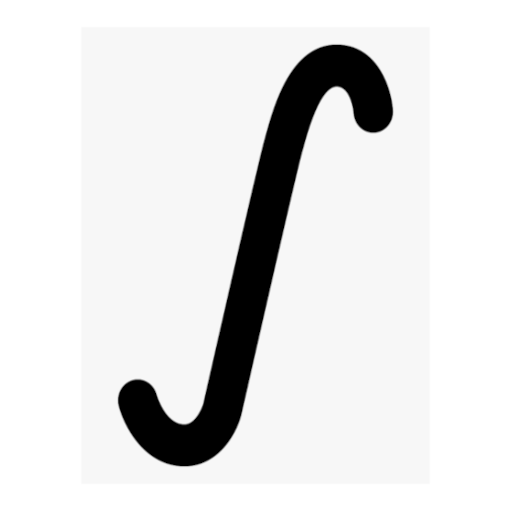

Damn you, Sonic the Hedgehog!


Damn you, Sonic the Hedgehog!


I’ve seen the occasional post here on lemmy making this point. I don’t see anything factually wrong in saying she’d likely keep status quo or even make it worse. But when I see this said the one thing that I always wonder is never addressed:
How would the outcome be better if you voted against her?
Like, I have to imagine that someone making this argument thinks Trump would improve the situation. Because if that isn’t the case, then this is not a decision I’m making at the voting booth, so saying she’d continue genocide as a reason to vote against her falls flat (and, if you’re wondering, is why people are quick to downvote this argument). Is the hope that Trump will see the artillery shells sent to isreal as “librul policy” and axe it on that basis? Or that he’ll do such a bad job that he’ll get assassinated/arrested/overthrown? Something else entirely?
Enlighten me, because I can’t envision Trump making anything better.


Yeah I’m on voyager too and home stopped working for me at the same time as this hidden community issue. Home and All are literally the same feed now. Curious if these issues are related.
Lol it refused to post this reply until I logged out then back in, whereupon the issue was fixed. Guess that answers that.


I’ve tried to hide all the moes but it feels sisyphean. I hide cyber moe, military moe, office moe… but the next day someone is going to start taco moe and I will see a half naked girl with cheese hair and a lettuce bra. There is no escape.


Hmm… the first three are the reals, but the last one is the rationals. Am I reading that right?


I live in Washington state and I’m pretty certain the sales tax here is 10% (slightly higher than your maximum figure of 9.56%). It’s a pretty well known trick here that you can account for tax just by decimal shifting and adding (ex: 5.29$ without would be 5.29$ + 0.529$ ~= 5.81$ with tax). Is that 9.56% an “in practice” figure that accounts for rounding down? I’m curious where you read it.


I wouldn’t say that it’d be strictly impossible, however if it can be done then it would come at a considerable cost to useability, versatility, etc.
One adjacent concept that comes to mind is the use of the :visited CSS tag to extract a user’s browsing habits. I remember seeing a demonstration of this where an “are you human” captcha was shown but the choice of image in each box was controlled by the :visited tag. I can’t find that post, but this medium article demonstrates a similer concept. There are mitigations to this luckily, but a fullproof solution would be to remove the tag’s functionality altogether, which would make certain websites (like the one we’re on right now!) much more inconvenient to use.
It seems trivial to me for a website to detect user behaviors that indicate the use of an adblocker. For example, if a request for a page is immediately followed by a request for a video on that page, rather than after 5-60 seconds, then they’re likey using an adblocker. If there is an ad placed between two paragaphs in an article, but two distant paragraphs are visible at the same time, it is more likely (although not guaranteed) that they are using an adblocker. If a user triggers an abnormal amount of those heuristics then they get flagged as an adblocking user.
I agree pretty strongly with this generally. The farside has a way of having jokes that are so simple on it’s face that I’m left thinking “surely I’ve missed something?” Usually it turns out that no, in fact, I got the joke and was just vastly underwhelmed.
For whatever reason I found this one to be mildly funny. Couldn’t tell you why. Perhaps it’s the idea that the people who built the atomic bomb weren’t that smart after all?
I’m no biologist, but I’m pretty sure that this photo I took a while back has a lot of lichen:

That flakey & coral-looking stuff growing on the branches should be lichen.


I honestly assumed I was colorblind in one eye (I am diagnosed, at least)


The thing that finally got businesses to finally get off IE wasn’t from the browser being worse than every other option. Heck, it wasn’t even because it was a decrepit piece of software that lost it’s former market dominance (and if anything businesses see that as a positive, not a negative).
What finally did that was microsoft saying there won’t be any security updates. That’s what finally got them off their ass; subtly threatening them with data breaches, exploits, etc. if they continue to use it. I don’t see google doing this anytime soon, at least not without a “sequel” like microsoft had with edge.


bottom side of a pcb


Surprised TOEM isn’t on your list, given the premise is pretty much exactly what you describe. Last I checked it comes up on the first page or something if you sort steam by highest rated.
Lunacid might also be a good game. I think it fits your criteria for me, but that might just be for me.


I dunno, having two primes sum to a power of two is undeniably powerful in my experience. The number of times a calculation goes from tedious to trivial from this sum is incalculable. The lowest I’d put it is A.


Isn’t the Weierstrass function a counterexample to the premise? Wait no, I misread. It’s the converse.


I have mine set up with a bunch of categories that are sorted with a prepended 3-digit number. Allows me to have different sections of category without it getting mixed up. ex:
010 S
011 A+
012 A
013 A-
014 B+
etc...
350 plz play soon
355 wont play
...
800 dont remember buying this


When I read the problem description I expected the input to also be 2 digit numbers. When I looked at it I just had to say “huh.”
Second part I think you definitely have to do in reverse (edit: if you are doing a linear search for the answer), as that allows you to nope out as soon as you find a match, whereas with doing it forward you have to keep checking just in case.
package day5
import "core:fmt"
import "core:strings"
import "core:slice"
import "core:strconv"
Range :: struct {
dest: int,
src: int,
range: int,
}
Mapper :: struct {
ranges: []Range,
}
parse_range :: proc(s: string) -> (ret: Range) {
rest := s
parseLen := -1
destOk: bool
ret.dest, destOk = strconv.parse_int(rest, 10, &parseLen)
rest = strings.trim_left_space(rest[parseLen:])
srcOk: bool
ret.src, srcOk = strconv.parse_int(rest, 10, &parseLen)
rest = strings.trim_left_space(rest[parseLen:])
rangeOk: bool
ret.range, rangeOk = strconv.parse_int(rest, 10, &parseLen)
return
}
parse_mapper :: proc(ss: []string) -> (ret: Mapper) {
ret.ranges = make([]Range, len(ss)-1)
for s, i in ss[1:] {
ret.ranges[i] = parse_range(s)
}
return
}
parse_mappers :: proc(ss: []string) -> []Mapper {
mapsStr := make([dynamic][]string)
defer delete(mapsStr)
restOfLines := ss
isLineEmpty :: proc(s: string)->bool {return len(s)==0}
for i, found := slice.linear_search_proc(restOfLines, isLineEmpty);
found;
i, found = slice.linear_search_proc(restOfLines, isLineEmpty) {
append(&mapsStr, restOfLines[:i])
restOfLines = restOfLines[i+1:]
}
append(&mapsStr, restOfLines[:])
return slice.mapper(mapsStr[1:], parse_mapper)
}
apply_mapper :: proc(mapper: Mapper, num: int) -> int {
for r in mapper.ranges {
if num >= r.src && num - r.src < r.range do return num - r.src + r.dest
}
return num
}
p1 :: proc(input: []string) {
maps := parse_mappers(input)
defer {
for m in maps do delete(m.ranges)
delete(maps)
}
restSeeds := input[0][len("seeds: "):]
min := 0x7fffffff
for len(restSeeds) > 0 {
seedLen := -1
seed, seedOk := strconv.parse_int(restSeeds, 10, &seedLen)
restSeeds = strings.trim_left_space(restSeeds[seedLen:])
fmt.print(seed)
for m in maps {
seed = apply_mapper(m, seed)
fmt.print(" ->", seed)
}
fmt.println()
if seed < min do min = seed
}
fmt.println(min)
}
apply_mapper_reverse :: proc(mapper: Mapper, num: int) -> int {
for r in mapper.ranges {
if num >= r.dest && num - r.dest < r.range do return num - r.dest + r.src
}
return num
}
p2 :: proc(input: []string) {
SeedRange :: struct {
start: int,
len: int,
}
seeds := make([dynamic]SeedRange)
restSeeds := input[0][len("seeds: "):]
for len(restSeeds) > 0 {
seedLen := -1
seedS, seedSOk := strconv.parse_int(restSeeds, 10, &seedLen)
restSeeds = strings.trim_left_space(restSeeds[seedLen:])
seedL, seedLOk := strconv.parse_int(restSeeds, 10, &seedLen)
restSeeds = strings.trim_left_space(restSeeds[seedLen:])
append(&seeds, SeedRange{seedS, seedL})
}
maps := parse_mappers(input)
defer {
for m in maps do delete(m.ranges)
delete(maps)
}
for i := 0; true; i += 1 {
rseed := i
#reverse for m in maps {
rseed = apply_mapper_reverse(m, rseed)
}
found := false
for sr in seeds {
if rseed >= sr.start && rseed < sr.start + sr.len {
found = true
break
}
}
if found {
fmt.println(i)
break
}
}
}


Oh yeah, I misspoke, gonna edit.
While I do agree that math gets much easier with interest, and that it gets more interesting the further you get into it, and that math is inherently beautiful, etc. I feel this argument has to fall flat to people who don’t already agree. It’s the education equivalent of when someone says they couldn’t get into an anime and then the fans tell them ‘oh it gets really good around season 9’. You could be completely correct, as you are here, but it’s utterly unconvincing if you don’t already “know.”
To be fair, I think this is mostly a problem with math curricula. Math classes up through high school and early college seem to focus on well trodden solutions to boring problems, and at some (far too late) point it flips around to being creative solutions to interesting problems. I think this could be fixed eventually, but such is the system we have now.